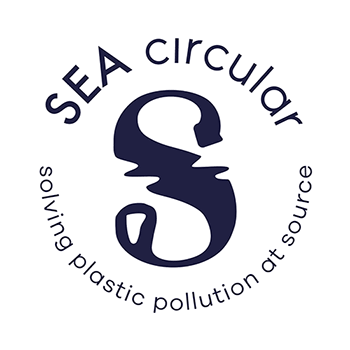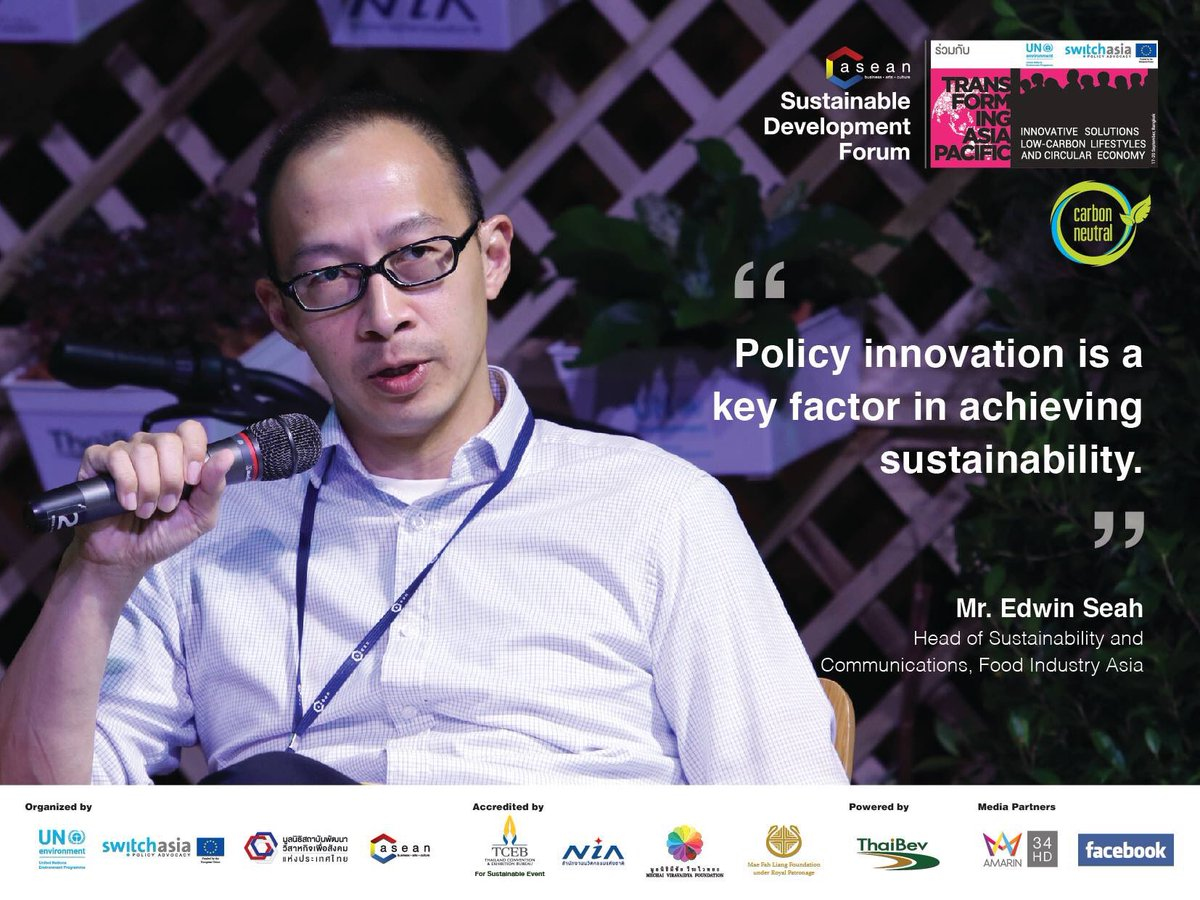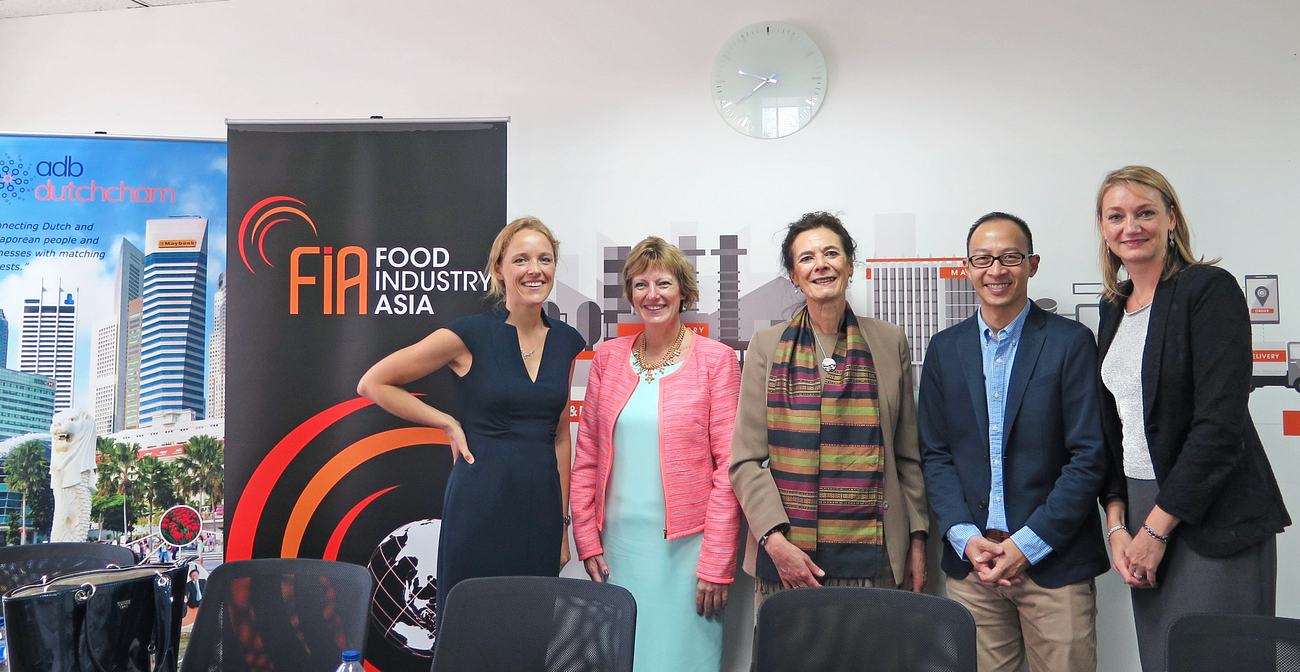
SOLUTION PARTNERS

Edwin Seah
Head of Sustainability & Communications at Food Industry Asia (FIA)Home » Solution Partners » Edwin Seah
OVERVIEW
SEA circular met Edwin Seah, Head of Sustainability & Communications at Food Industry Asia (FIA), to find out more about how FIA is galvanizing the food and beverage industry to tackle packaging pollution.
What motivates and inspires you to do what you do?
I’m motivated to do what I do to ensure my children and their children get to live in an environment that enriches their health and quality of life – not the exact opposite!
Singapore’s founding Prime Minister Lee Kuan Yew has inspired me the most. As leader of a then newly-independent country in 1967, he chose to put the environment as a top priority of his government’s growth and development agenda. He famously said, “After independence, I searched for some dramatic way to distinguish ourselves from the other Third World countries. I settled for a clean and green Singapore.”
He showed then that as a developing nation, a country could balance social, economic and environmental priorities without sacrificing one for the other. You just need foresight, commitment and planning.
Singapore’s founding Prime Minister Lee Kuan Yew has inspired me the most. As leader of a then newly-independent country in 1967, he chose to put the environment as a top priority of his government’s growth and development agenda. He famously said, “After independence, I searched for some dramatic way to distinguish ourselves from the other Third World countries. I settled for a clean and green Singapore.”
He showed then that as a developing nation, a country could balance social, economic and environmental priorities without sacrificing one for the other. You just need foresight, commitment and planning.
‘I’m motivated to do what I do to ensure my children and their children get to live in an environment that enriches their health and quality of life - not the exact opposite!’
What was your personal journey that led you towards your work in plastic waste reduction with FIA?
I am an ‘accidental environmentalist’! My passion and interest in environmental and sustainability issues grew when I joined the Singapore Environment Council (SEC), an environmental NGO, in 2014, first as its Communications Director and a year later as Executive Director. I was intimately involved in issues ranging from deforestation and the haze, to the 3Rs and promoting green procurement in the public sector. As early as 2014, we did a study on plastic bag usage in Singapore, and urged local supermarkets to charge shoppers for plastic bags.
I joined FIA in 2018 to build its sustainability pillar. Plastics and packaging immediately became the number one environmental issue and the top priority for governments, industry and non-government and international agencies. I became more and more involved in the plastics conversation, first from FIA’s four-country (Indonesia, the Philippines, Viet Nam and Thailand) study on tackling plastic and packaging waste In South East Asia, and then through getting to know the UN Environment Programme (UNEP) and ASEAN, and attending meetings, workshops and activities on the issue at national, regional and global levels.
I joined FIA in 2018 to build its sustainability pillar. Plastics and packaging immediately became the number one environmental issue and the top priority for governments, industry and non-government and international agencies. I became more and more involved in the plastics conversation, first from FIA’s four-country (Indonesia, the Philippines, Viet Nam and Thailand) study on tackling plastic and packaging waste In South East Asia, and then through getting to know the UN Environment Programme (UNEP) and ASEAN, and attending meetings, workshops and activities on the issue at national, regional and global levels.
What achievement are you most proud of in the work of FIA in reducing plastic pollution?
I am most proud of the fact that FIA and the food and beverage industry has not shied away from the issue. Instead, the industry has sought to engage stakeholders to identify gaps and develop action plans to meet the challenge of reducing plastic pollution. We have built up a network with agencies like UNEP, and national governments across Asia, to fix the problem. I am excited that we will be working closely with UNEP as an implementation partner for the SEA circular program to solve plastic pollution at source.

What has been your biggest challenge you have faced in working to promote sustainable business and reduce plastic waste in South East Asia?
Major challenges and frustration are the lack of a coordinating body or organization to consolidate the funding, studies, data, and technical expertise available internationally – and then to funnel this support and information to each country, based on their area or level of need to tackle the plastic pollution problem.
Take Indonesia, the Philippines, Vietnam and Thailand. After China, these four countries are ‘ranked’ among the top five plastic polluters. Each country needs a different and tailored approach to dealing with the problem, as FIA’s 2018 study of these four countries showed.
The global community must come together fast and in a coordinated manner, to deal with the mounting problem of plastic and packaging pollution brought on by low waste management collection rates and the lack of recycling and disposal facilities.
Take Indonesia, the Philippines, Vietnam and Thailand. After China, these four countries are ‘ranked’ among the top five plastic polluters. Each country needs a different and tailored approach to dealing with the problem, as FIA’s 2018 study of these four countries showed.
The global community must come together fast and in a coordinated manner, to deal with the mounting problem of plastic and packaging pollution brought on by low waste management collection rates and the lack of recycling and disposal facilities.
What is your sustainable business vision?
As a responsible industry body representing the world’s biggest food and beverage brands operating in Asia, FIA wants to engage and partner with stakeholders at national, regional and global levels to ensure sustainability for businesses, communities, and the environment. As Singapore’s founding Prime Minister has shown, the social, economic and environmental nexus can be given priority without sacrificing one for the other.
‘The global community must come together fast and in a coordinated manner, to deal with the mounting problem of plastic and packaging pollution.’
What’s next for you in plastic pollution reduction? What are you working on right now and who are you collaborating with?
We will continue to engage governments and national industry partners to review policies that can reduce the plastic pollution problem. This includes allowing the use of recycled material (e.g. rPET) for food-grade packaging, introducing mandatory source segregation of waste, developing data and information that is transparent and current, and co- developing and implementing policies that can better address the challenges. For example, some countries could look at a mandatory packaging reporting framework, such as the framework that Singapore is introducing from 2020. This provides a way of obtaining data and information on the types of packaging material use, the rate of recycling for such materials, the industries involved. In this way we can encourage local companies to be part of the national effort to tackle the problem.
Regarding materials and innovation, FIA is working with Singapore’s Economic Development Board, FMCG brands like Nestle and P&G, and Singapore’s Agency for Science, Technology & Research to accelerate the development of solutions for two immediate challenges identified – mono material packaging and biodegradable materials. This is being done through the Circular Materials Lab established in Singapore by these organizations.
Through our involvement with SEA circular program, we will continue to champion policies and innovations to promote a cleaner, greener South East Asia.
Regarding materials and innovation, FIA is working with Singapore’s Economic Development Board, FMCG brands like Nestle and P&G, and Singapore’s Agency for Science, Technology & Research to accelerate the development of solutions for two immediate challenges identified – mono material packaging and biodegradable materials. This is being done through the Circular Materials Lab established in Singapore by these organizations.
Through our involvement with SEA circular program, we will continue to champion policies and innovations to promote a cleaner, greener South East Asia.

What in your view is the single most important factor which would help to solve marine plastic pollution at source in South East Asia?
Coordination! We need a coordinating body or entity to bring together solutions, funding, technical expertise and country-specific priorities. Right now, there are at least a dozen donor countries, inter-governmental organizations, NGOs, and industry-funded entities pledging anywhere between US$1.5 billion to US$2 billion to tackle plastic pollution. But the sense is that the awareness, commitment, money and momentum could be lost because efforts and funds are not being coordinated. For example, one short to medium term solution to stop more plastics from entering the environment is to build waste-to-energy plants in communities that need them the most. Some of the funds available could be used to build these plants, and even the communities that need them can be readily identified. And several FIA members in Vietnam recently launched a Packaging Recycling Organization (PROs) in Ho Chi Minh City to help step up collection and recycling of packaging waste. More of such PROs could be set up across South East Asia and faster, if stakeholders come together to provide policy support, funding and awareness building.
Share This!
Other Solution Partners
